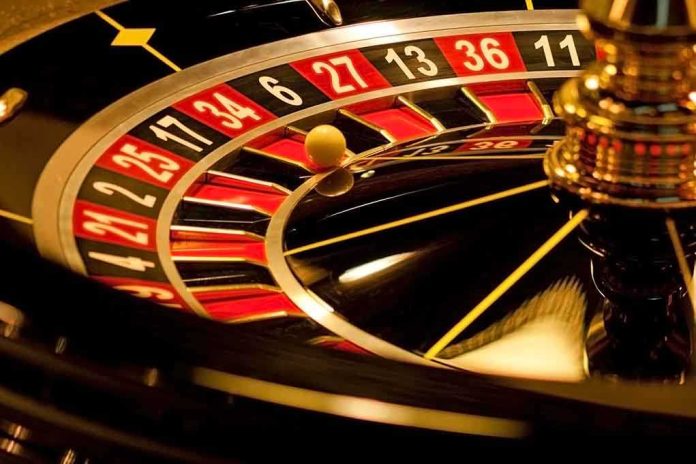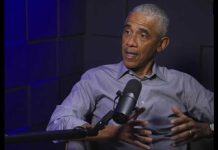
What happens when a billionaire governor walks into a Las Vegas casino and walks out $1.4 million richer, then tells the world exactly how he did it?
Story Snapshot
- Illinois Governor JB Pritzker won $1.4 million playing blackjack in Las Vegas, igniting a storm of media and public curiosity.
- Pritzker’s openness about the win, and its roots in “incredible luck,” sets his story apart from the usual political headlines.
- The event spotlights the complex crossroads of wealth, public office, gambling, and philanthropy.
- No evidence of impropriety or scandal, but the optics and implications for political figures and gambling remain an open question.
The Governor’s Gamble: A High Roller’s Night in Sin City
On a vacation trip in 2024, Illinois Governor JB Pritzker—a billionaire, philanthropist, and no stranger to the casino floor—sat down at a blackjack table in Las Vegas. Hours later, he left with a net gain of $1.4 million and a story that would ripple far beyond the neon lights. His winning hand wasn’t just a stroke of luck; it was a moment that would later draw stares, headlines, and questions from across the country, especially after he recounted the details to the Wall Street Journal a year later.
Governors have faced scrutiny for far less. Yet here was Pritzker, candidly calling his jackpot “incredible luck,” not investment genius or a strategy masterstroke. “Most of the time anybody who’s been to a casino… you often play for too long and lose whatever it is that you’ve won. I was fortunate enough to have to leave before that happened.” The candor was disarming, offering a rare glimpse behind the curtain of both immense wealth and high public office.
Luck, Wealth, and the Politics of Transparency
Pritzker’s family fortune and public role made the win more than a footnote. As governor since 2019 and a prominent figure in business and philanthropy, his every move is watched for both symbolism and substance. His history organizing charitable poker events for causes like the Holocaust Museum in Chicago adds another layer—this isn’t a man unfamiliar with the stakes, literal or figurative. The $1.4 million windfall, according to Pritzker, represents the sheer unpredictability of gambling, not a new pattern of behavior. He was quick to point out that most casino visits don’t end with a profit, and even quicker to highlight his commitment to responsible play.
The reaction from the public and media split along familiar lines. Some saw harmless fun, a personal triumph for a man who can afford to lose. Others bristled at the optics: should a sitting governor, already a billionaire, be involved in high-stakes gambling at all? For Pritzker, the answer was in his transparency—he had nothing to hide, no intent to profit from politics, and a record of channeling his gaming skills into charitable work. Few politicians have played their cards so openly in the public arena.
Charity, Casinos, and the Spotlight’s Glare
Las Vegas, the world’s gambling capital, has long attracted celebrities, moguls, and politicians seeking thrill and fortune. What distinguishes Pritzker’s story is not just the size of the win, but the way he’s woven philanthropy into his gambling narrative. His Chicago Poker Challenge has raised millions for charity, and he’s used his platform to promote responsible, purposeful play. This intersection of wealth, gaming, and charity is rare—especially for someone in active office. There are no reports of impropriety, and no suggestion that his gambling was anything but personal recreation. Still, the incident shines a light on how American culture views risk, reward, and responsibility—especially in its leaders.
The episode also reopens the timeless debate on political figures and gambling. Ethics experts and political analysts point out that while the law is clear, public perception is less so. Some argue that Pritzker’s openness defuses controversy, making the story one of luck rather than scandal. Others caution that optics matter, and opponents may seize any opportunity to question judgment, priorities, or relatability—even when the facts show nothing untoward.
Aftermath and Implications: The Odds of Public Perception
Since the Wall Street Journal interview in October 2025, there has been no sign of official controversy or investigation. What remains is a fascinating case study in transparency, luck, and the American fascination with both. Illinois constituents and the wider public are left to draw their own conclusions: is this a harmless tale of fortune, or a window into broader questions about wealth, power, and the role of risk in leadership?
In the short term, Pritzker’s win has meant a spike in headlines and a fresh round of debate about the line between private life and public duty. Long term, the story may influence how future political figures approach not just gambling, but the way they share their personal experiences. For now, the governor’s “incredible luck” stands as a reminder that in both politics and the casino, the next hand is always unpredictable—and everyone’s watching to see who wins, and how.
Sources:
Gov. JB Pritzker won $1.4 million in Vegas playing blackjack



